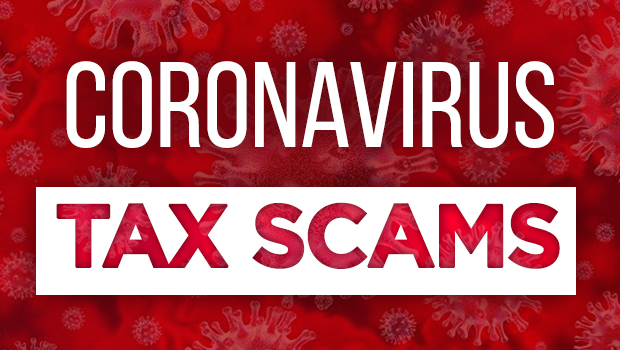As you already know, Congress recently passed the largest emergency financial stimulus package in the history of the United States. Officially called the Coronavirus Aid, Relief, and Economic Security Act (CARES Act), this law provides, among other things, cash payments to Americans. The IRS will administer this process, which creates the potential for various tax scams.
How the Cash Payments Work Under the CARES Act
Individuals making up to $75,000 will receive $1,200. Married couples earning up to $150,000 will receive $2,400. Parents will also be eligible to receive $500 per child. However, these payments have income limits.
Spouses earning a combined $198,000 will get nothing, as will individuals earning more than $99,000. For those making more than $75,000, but less than $99,000, they will receive reduced payments that equate to $5 less for every extra $100 earned.
For example, an individual earning $70,000 per year will receive the full $1,200. But someone making $76,000 per year will only receive $1,150.
The IRS will use 2018 or 2019 tax returns to determine eligibility, payment amounts and how to send the money. If the IRS has a taxpayer’s direct deposit information on file, the money will be sent directly to the taxpayer’s bank account. If the IRS lacks direct deposit information, the IRS will mail the payment by check.
These payments should have begun to be sent out by around the middle of April. But given how short-staffed the IRS was even before the coronavirus pandemic, delays are very possible.
How the Scams Work
The scams work by focusing on the confusion over how the cash payment process will take place. Scammers also prey on taxpayers who might be desperate to get their money sooner rather than later to pay their bills and obtain essential supplies.
What usually happens first is that a scammer will contact a taxpayer by telephone, text or email mentioning the taxpayer’s eligibility to receive the $1,200 cash payment. From there, the scammer may use one of multiple approaches.
First, they may ask for personal information to steal the taxpayer’s identity. For instance, the scammer might pretend to be from the IRS and claim they need the person’s social security number, birthday and address to process the $1,200 cash payment.
Second, they may ask for financial information from the taxpayer, such as PayPal or bank account information. They will then use this information to steal money directly from the taxpayer.
Third, they will lie to the taxpayer and tell them that they need to pay a fee to receive the $1,200 coronavirus stimulus check.
How to Help Spot a Coronavirus Stimulus Cash Payment Tax Scam
Keep the following pointers and red flags in mind to keep yourself safe from a tax scam involving your coronavirus stimulus check:
- You do not have to pay anything to receive your payment.
- Outside of the process of filing your taxes, the IRS will not ask for your personal information to send you your cash payment.
- The scammer promises you even more money than you’re eligible for.
- The person calling, emailing or texting you promises a way for you to get your money even faster.
If you observe any of the above behaviors or activities, do not interact with the scammer. It will also be beneficial for you to report the scam to the property authorities. You can do this by informing either the Tax Inspector General for Tax Administration or the Federal Trade Commission’s FTC Complaint Assistant.


Thank you, LaDonna for such valuable information. I hope you are doing well.